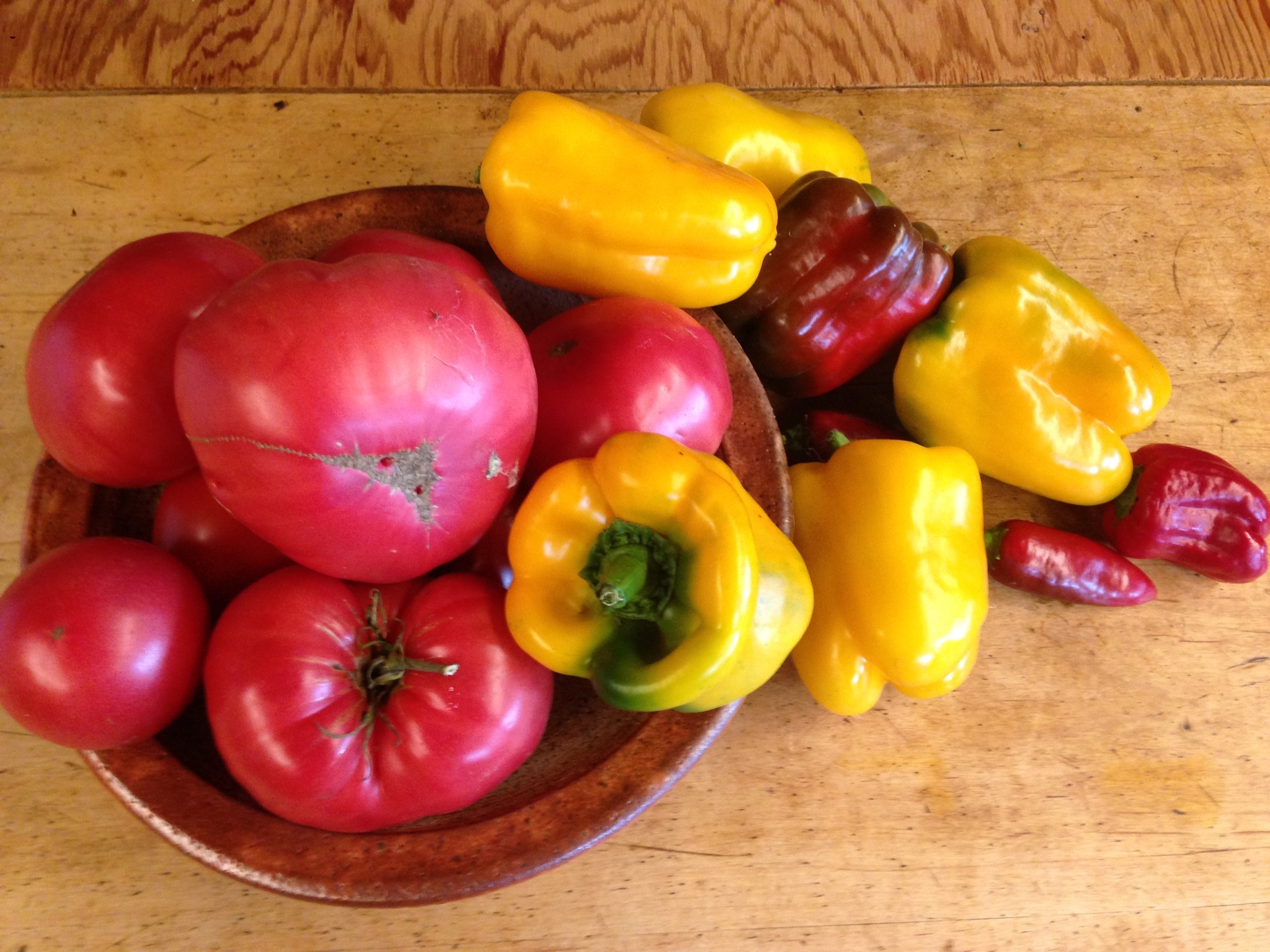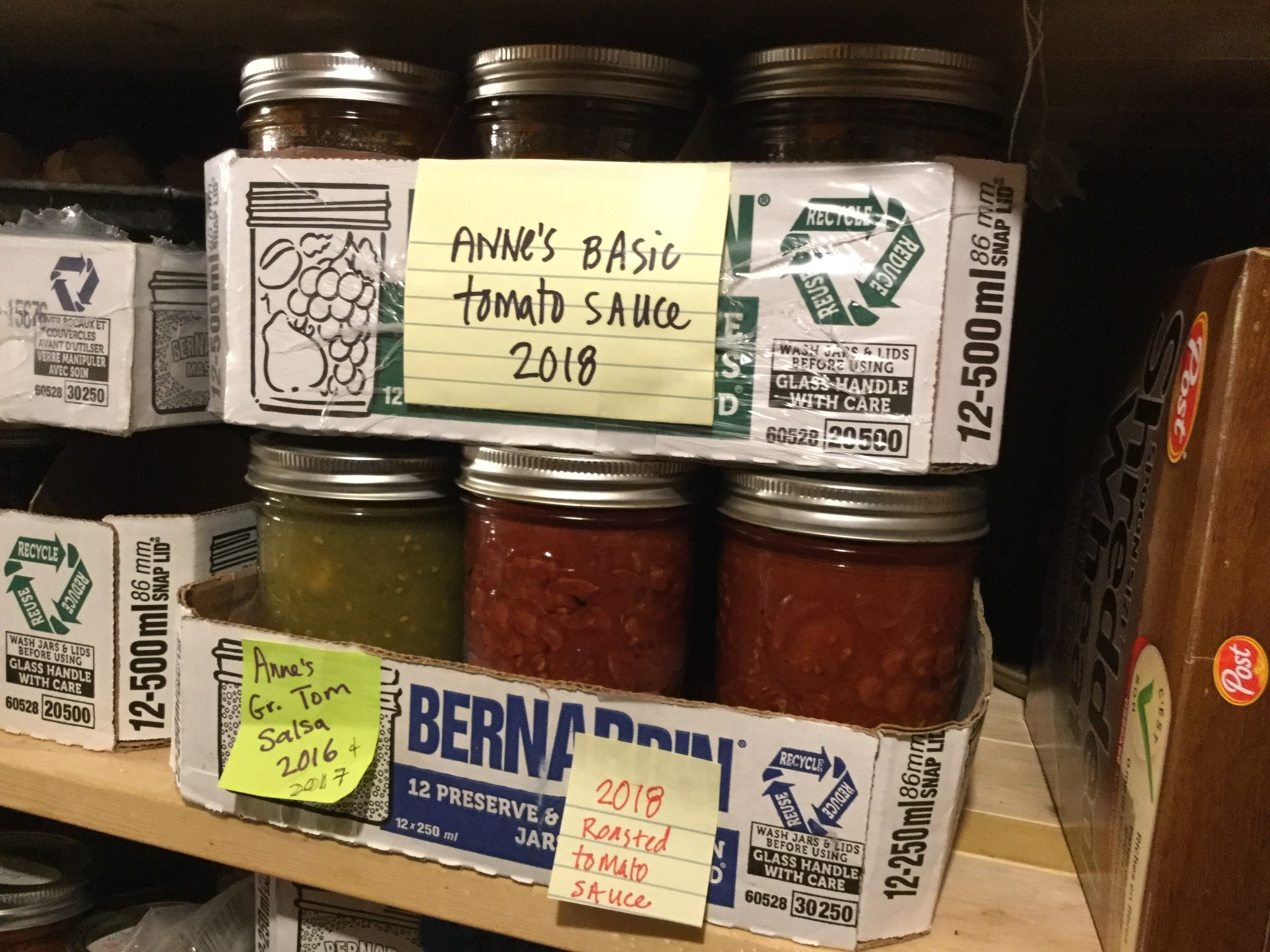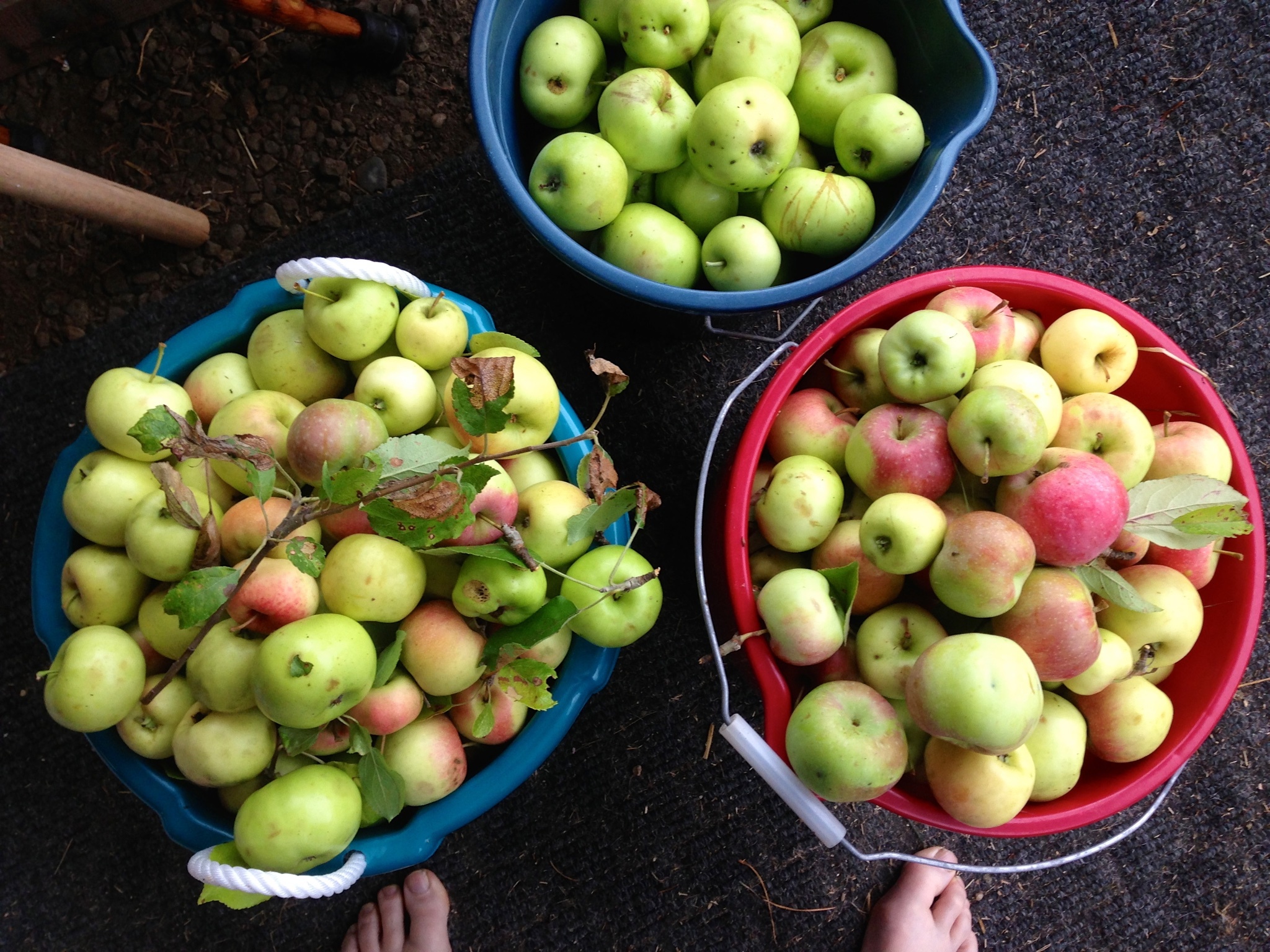Anne Mowat
POINTS TOTAL
- 0 TODAY
- 0 THIS WEEK
- 576 TOTAL
participant impact
-
UP TO36whole food mealsconsumed
-
UP TO280gallons of waterhave been saved
-
UP TO60minutesspent learning
-
UP TO720minutesspent exercising
-
UP TO38locally sourced mealsconsumed
Anne's actions
Food
Locally-Sourced Meals
I will source 2 meal(s) each day from local producers.
Food
Try a New Way to Prep
I will try a new method of food preparation, such as canning, pickling, or baking bread.
Food
Whole Foods Diet
I will enjoy 2 meal(s) each day free of processed foods.
Food
Choose Organic Ingredients
I will enjoy 3 meal(s) cooked with organic ingredients each day.
Water
5-Minute Showers
I will save up to 20 gallons (75 L) of water each day by taking 5-minute showers.
Health
Exercise Daily
Exercise is a great stress blaster! I will exercise for 45 minute(s) each day.
Participant Feed
-
 Anne Mowat 10/22/2018 11:35 AMA huge thank you to the team at EcoChallenge… I value receiving your reminder emails, since my Actions (and many more) are integrated into everyday life for us. It’s easy for me to let a few days slip by without checking in. Desk-work and myriad homestead tasks are fairly demanding these days, as we complete the harvest (Canning! Drying! Cold-Cellaring!) and prepare for Winter (garlic planting, wood splitting & stacking, bringing out the snowshoes and putting away the gardening hoses.... etc.). Your reminders nudge me to check in, an improvement over the Spring, 2018 Challenge, and I wanted you to know that I appreciate it.
Anne Mowat 10/22/2018 11:35 AMA huge thank you to the team at EcoChallenge… I value receiving your reminder emails, since my Actions (and many more) are integrated into everyday life for us. It’s easy for me to let a few days slip by without checking in. Desk-work and myriad homestead tasks are fairly demanding these days, as we complete the harvest (Canning! Drying! Cold-Cellaring!) and prepare for Winter (garlic planting, wood splitting & stacking, bringing out the snowshoes and putting away the gardening hoses.... etc.). Your reminders nudge me to check in, an improvement over the Spring, 2018 Challenge, and I wanted you to know that I appreciate it. -
 Anne Mowat 10/16/2018 5:51 PMWhen I was growing up, I looked forward to Summer, the warmth and the sun. Now, with increasingly intense forest fires and drought conditions plaguing us for the past few years, I am seeing our landscape change, and the temperate rain forest is showing signs of stress. We do our best, but I would like to see public policy change in a direction that rewards reducing our carbon footprint and shifts the costs onto the sectors that are currently subsidized to make things worse. I would like that. But I'm not holding my breath.
Anne Mowat 10/16/2018 5:51 PMWhen I was growing up, I looked forward to Summer, the warmth and the sun. Now, with increasingly intense forest fires and drought conditions plaguing us for the past few years, I am seeing our landscape change, and the temperate rain forest is showing signs of stress. We do our best, but I would like to see public policy change in a direction that rewards reducing our carbon footprint and shifts the costs onto the sectors that are currently subsidized to make things worse. I would like that. But I'm not holding my breath. -
 Anne Mowat 10/13/2018 8:32 AMNot only are we thankful that we can grow much of our own vegetables, we are also finding that they taste better, much better, in fact, than vegetables trucked in from hundreds of kilometres away. It’s a dividend from the investment of time and the cost of inputs (water, compost, energy, etc.). Apart from the satisfaction, we feel a real joy around the simple fact of great tasting garden vegetables...
Anne Mowat 10/13/2018 8:32 AMNot only are we thankful that we can grow much of our own vegetables, we are also finding that they taste better, much better, in fact, than vegetables trucked in from hundreds of kilometres away. It’s a dividend from the investment of time and the cost of inputs (water, compost, energy, etc.). Apart from the satisfaction, we feel a real joy around the simple fact of great tasting garden vegetables... -
REFLECTION QUESTIONWaterFive minute showers are an impressive step toward reducing your water footprint. What is the next step you can take?
 Anne Mowat 10/09/2018 2:24 PMMaybe I shouldn't have chosen this Action Item, but I wanted to open consideration of another option: We have a bathtub, and I allow myself 1 bath per week, with daily washing in between, using not more than a basin of water, soap, a nail brush, and a washcloth. I also wash my long hair only once a week, using a simple fragrance-free shampoo bar. Instead of conditioner, I apply just a bit of hemp oil on towel-dried hair, and I minimize my use of a hair dryer, to save energy. I think we have been brainwashed by advertising to believe that personal hygiene requires an everyday multi-step, energy-and-water-consumptive, costly, time-consuming and cosmetically intensive ritual. It does not. Yes, we CAN get clean and stay clean using just a few litres of water! YES, WE CAN!
Anne Mowat 10/09/2018 2:24 PMMaybe I shouldn't have chosen this Action Item, but I wanted to open consideration of another option: We have a bathtub, and I allow myself 1 bath per week, with daily washing in between, using not more than a basin of water, soap, a nail brush, and a washcloth. I also wash my long hair only once a week, using a simple fragrance-free shampoo bar. Instead of conditioner, I apply just a bit of hemp oil on towel-dried hair, and I minimize my use of a hair dryer, to save energy. I think we have been brainwashed by advertising to believe that personal hygiene requires an everyday multi-step, energy-and-water-consumptive, costly, time-consuming and cosmetically intensive ritual. It does not. Yes, we CAN get clean and stay clean using just a few litres of water! YES, WE CAN! -
 Anne Mowat 10/08/2018 11:08 AMThe Challenge for us is just the way we live: off-grid, on solar power, in a straw bale house in a village of small family farms, part of an agricultural reserve. We have 3 gardens, but trees, berry bushes. We are completing harvesting now, and have put up most of the vegetables we have grown, as well as local fruits. By “put up”, I mean we have used various means of preserving food for the winter: cold storage (carrots, beets, squash, garlic, onions) canning (tomatoes, pears, peaches, cherries, etc), drying (plums, cherries, peaches, pears), & freezing (chard, kale, broccoli, peas, corn, collard greens, etc, as well as our homestead-raised chickens, and, later in winter, rabbits) to preserve our garden bounty. We view this effort as a privilege, as it takes a huge amount of energy and time and it can be more expensive than the supermarket; we don’t benefit from economies of scale. The more we try to do to reduce our carbon footprint, the more we see that it is governed by a complex, intertwined and challenging set of issues.
Anne Mowat 10/08/2018 11:08 AMThe Challenge for us is just the way we live: off-grid, on solar power, in a straw bale house in a village of small family farms, part of an agricultural reserve. We have 3 gardens, but trees, berry bushes. We are completing harvesting now, and have put up most of the vegetables we have grown, as well as local fruits. By “put up”, I mean we have used various means of preserving food for the winter: cold storage (carrots, beets, squash, garlic, onions) canning (tomatoes, pears, peaches, cherries, etc), drying (plums, cherries, peaches, pears), & freezing (chard, kale, broccoli, peas, corn, collard greens, etc, as well as our homestead-raised chickens, and, later in winter, rabbits) to preserve our garden bounty. We view this effort as a privilege, as it takes a huge amount of energy and time and it can be more expensive than the supermarket; we don’t benefit from economies of scale. The more we try to do to reduce our carbon footprint, the more we see that it is governed by a complex, intertwined and challenging set of issues.

-
 Anne Mowat 10/08/2018 11:15 AM
Anne Mowat 10/08/2018 11:15 AM
-
-
 Anne Mowat 8/15/2018 11:16 AMI am also excited to be rejoining the Fall Eco-Challenge, after having actively participated last spring. One thing I am struggling with is that many of these actions are targeted to urbanites working or attending school. We live on an acreage, off-grid on solar, grow many of our own vegetables, buy locally grown fruits or trade with our neighbours, eggs for berries for example. We hand-raise chickens for eggs and both chickens and rabbits for meat. Our straw bale house is constructed of locally sourced natural materials, and I recognize there is a substantial energy cost whenever you build. I realize city dwellers can’t do what we do, but I see growing interest in homesteading as a response to the degradation of Earth. I would like to see some of the Challenges relate to those of us who are already engaged in actively drawing down our carbon footprint, and who are committed to permaculture principles, and I am wondering if you had considered that in designing the actions available to participants? Thank you.
Anne Mowat 8/15/2018 11:16 AMI am also excited to be rejoining the Fall Eco-Challenge, after having actively participated last spring. One thing I am struggling with is that many of these actions are targeted to urbanites working or attending school. We live on an acreage, off-grid on solar, grow many of our own vegetables, buy locally grown fruits or trade with our neighbours, eggs for berries for example. We hand-raise chickens for eggs and both chickens and rabbits for meat. Our straw bale house is constructed of locally sourced natural materials, and I recognize there is a substantial energy cost whenever you build. I realize city dwellers can’t do what we do, but I see growing interest in homesteading as a response to the degradation of Earth. I would like to see some of the Challenges relate to those of us who are already engaged in actively drawing down our carbon footprint, and who are committed to permaculture principles, and I am wondering if you had considered that in designing the actions available to participants? Thank you.